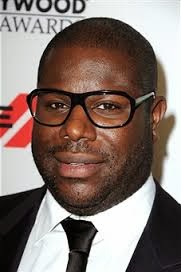Well this isn’t going to be fun.
The cast list alone was enough to get me queuing for a ticket. Rave reviews and
calls of ‘Oscar Gold!’ soon followed from an army of critics. But let’s face it
– slavery, British villains, torture and ‘true story’ are not elements that
lead to a barrel or laughs. This is going to be hard work and the audience
knows it (I appear to be the only one buying popcorn, ice lolly and a medium
coke with my ticket). Only thing left to do is sit back and watch over two
hours of a movie that immerses the viewer into the greatest tragedy of the
Western world. Yay…
A bit of plot. This is a true
story so fundamentally I don’t think this counts as a spoiler. Solomon Northup
is a free Negro man living in New York while slavery remains legal in the
southern states of America. He gets kidnapped and shipped south where he is
forced to give up his name and become a slave. After twelve years he is
discovered by his friends from the North and freed. That’s the true story. It’s
also the movie. “Twelve Years a Slave” doesn’t need to do much like throw in a
few extra explosions or a love story. Read the above again. This actually
fucking happened to a guy! Deep breathes…
 |
| The wonderful cast! |
So what were the cast like? Bloody
marvellous, to be short about it. “Twelve Years a Slave” is not just a simple
big screen stage production but is more closely similar to a literary novel.
There is a key relationship in the making of this tale. Chiwetel Ejiofor
(Solomon Northup) and the director, Steve McQueen, work in tandem to produce a
movie that almost feel first person. Long drawn out sequences with little to no
camera movement or background music, constant close ups of our protagonists
eyes, all this and more adds to the empathy and discomfort of the audience. Solomon
says nothing when confronted by the infuriatingly preposterous barbarity of
slaver and neither do we. We want to cry out for him but it is just as
pointless. The dissenting voice of a slave carries as much weight in 1840’s
Louisiana as my cry from the future does.
 |
| Our two main 'badies' enjoying some post production |
The white folk. Predominantly we
are talking about Benedict Cumberbatch and Michael Fassbender who respectfully
play the part of ‘good man doing nothing’ and ‘evil man doing everything.’ Both
are captivating in completely different ways. Both are utterly evil in
completely different ways. McQueen does not want to make slavery an easy
subject. Our two primary land owners exemplify this perfectly. One is easy to
hate while the other is easy to forgive yet both are guilty of the same crime.
Fassbender gets longer on screen to give his performance and dam well earns an
Oscar as far as I am concerned. Slavery gives one man total power over another
man. “All power corrupts” comes to mind in Fassbenders performance. But not just
in action but also in soul. Edwin Epps (Fassbenders character) is not corrupt
with power; HE is corrupt, down to his very black heart. White Devil would not
be an inappropriate sobriquet.
 |
| The director, Mr Steve McQueen. Check out some of his other work. What an artist! |
But was I entertained? Was this a
film that needed to be made? What was it actually about and what was if for? I
have to answer these questions for every movie. I find myself walking on egg
shells when it comes to topics like religion, slaver or the holocaust. The cynical
may say that using any of these themes in a film is easy mode for critical
success because they are essential bullet proof when it comes to analysis. You
have to get the tone right. For example “Twelve Years a Slave” is a legitimate
movie about the plight of slaves but “Django Unchained” was not. As any best
actor winner will tell you, “you never go full retard.”
 |
| This was a similar beginning to "The Hangover: Part 2" |
So what type of film is “Twelve
Years a Slave”? I find that the story fits snuggly into one category – horror.
This was a horror movie. We have a free Negro man who lives on the edge of the abyss
in safe New York suddenly thrown into the nightmare of slavery. And he cannot
wake up. He cannot tell the other characters that he is in a demented dream
because they exist in that false reality with him. Through expert storytelling,
the director then makes the nightmare even worse. We find out from the other
players that everyone is in this nightmare, not just Solomon. From plantation
owner to field nigger, everyone is living in hell. How do they live within the
inferno? We get it explained to us by different characters. Fear (of pain),
death (by running or suicide, same result), self-delusion (religion), and
substance abuse (alcohol). Everyone has their coping mechanism. Slavery was a
living nightmare for everyone involved and “Twelve Years a Slave” doesn’t
excuse or forgive anyone.
I give “Twelve Years a Slave”
five Brian faces out of five. This story actually happened. Slavery actually
happened. Make sure you see this film.

No comments:
Post a Comment